Biden's Legacy: The World Is More Unsafe For Journalists
Despite pronouncements, President Joe Biden's administration helped make the state of the free press more fragile
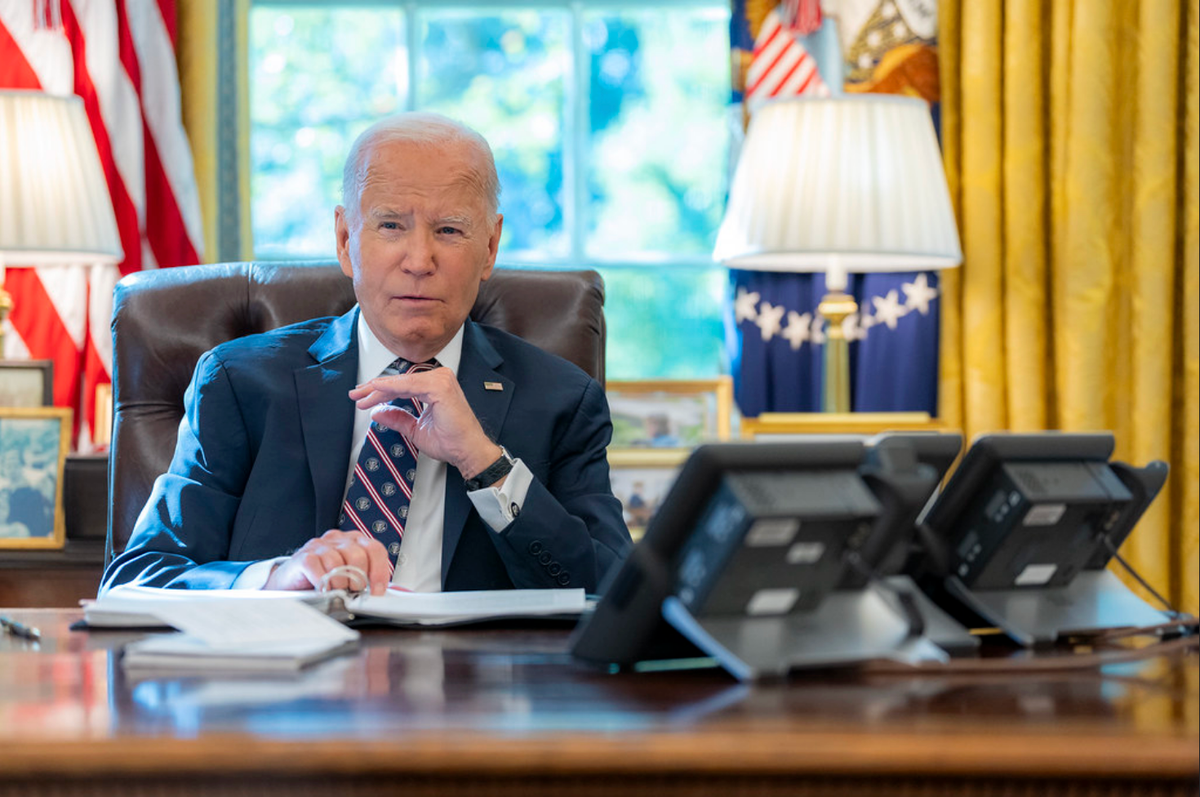
Editor's Note: The following is the fourth and final article in The Dissenter’s series on President Joe Biden's legacy when it comes to press freedom, whistleblowing, and government secrecy. The series began in November, and you can find previous articles here.
President Joe Biden’s administration proclaimed numerous times that “journalism is not a crime” and that the United States government supports “free and independent media around the world.” Biden said the “free press is crumbling” in his farewell address. But the reality is that Biden and his administration helped make the state of the free press more fragile.
Over 200 journalists in Gaza were killed by Israeli military forces armed by the Biden administration. Other client states, like India and Saudi Arabia, trampled on the human rights of reporters without fearing much criticism.
Through the political case against WikiLeaks founder Julian Assange, Biden became the first president to secure an Espionage Act conviction against a journalist.
Biden, along with Democrats, had plenty of time to pass a federal shield law to protect U.S. journalists from government interference. Yet when asked if he supported greater protection for the news media, the White House would not endorse the legislation.
And during the last week of Biden’s presidency, State Department spokesperson Matthew Miller had guards drag a reporter out of a press briefing room.
Reporters Without Borders (RSF) offered an assessment in their 2024 World Press Freedom Index that applies to the Biden administration:
A growing number of governments and political authorities are not fulfilling their role as guarantors of the best possible environment for journalism and for the public's right to reliable, independent, and diverse news and information. RSF sees a worrying decline in support and respect for media autonomy and an increase in pressure from the state or other political actors.
On top of Biden officials’ failure to create the “best possible environment for journalism,” they also cynically invoked freedom of the press to further U.S. foreign policy objectives. For example, officials were outspoken when Russia attacked journalists but nonchalant and tight-lipped when Israel killed, detained, or censored journalists.
Not All Journalists Are Really Journalists
The Biden administration claimed the authority to determine who is and is not a journalist in order to deny them protection from prosecutions. Officials also applied criminal charges or other forms of lawfare to suppress journalism that they opposed.
In June 2024, the biggest press freedom case of the century ended as Assange was finally released from London’s Belmarsh high-security prison. He flew to the Northern Mariana Islands and pleaded guilty to engaging in journalism in violation of the Espionage Act.
“Exposing government secrets and revealing them in the public interest is the core function of national security journalism. Today, for the first time, that activity was described in a guilty plea as a criminal conspiracy,” declared Ben Wizner, director of the ACLU’s Speech, Privacy, and Technology Project.
Assange was indicted during Trump’s first term. Attorney General Merrick Garland and the Biden Justice Department had a chance to heed the concerns of civil liberties, human rights, and press freedom groups and drop the charges. But the Biden administration sided with Trump officials like Jeff Sessions, Bill Barr, and Mike Pompeo, who had vengefully pursued the WikiLeaks founder, and bristled at reporters when questioned about the case.
FBI agents raided the home newsroom of Timothy Burke in 2023, and the following year, the Biden Justice Department charged Burke as an economic cybercriminal.
Burke’s crime, according to prosecutors, was that he “scoured” the internet for “electronic items and information” that were “deemed desirable” for news reporting. In particular, he obtained access to an unsecured stream that contained an uncut version of an interview Tucker Carlson conducted with rapper Kanye West for Fox News. (His trial was scheduled for June 2025.)
In Espionage Act prosecutions involving leaks, the Biden Justice Department continued the practice of treating the use of privacy tools, such as Tor or Tails, as evidence of criminal activity.
There were a few positive actions by the Biden administration. In 2021, the Commerce Department blacklisted the NSO Group, a Israeli spyware developer that was hired by countries like Bahrain, India, Saudi Arabia, and the United Arab Emirates. The governments targeted journalists, human rights activists, and powerful regime opponents. Visa restrictions against individuals who “misused” commercial spyware were also imposed by the State Department in 2024.
In 2023, a National Labor Relations Board (NLRB) judge stood up to Starbucks and deemed it unlawful for the corporation to pursue “extensive” and “verbose” requests for records of communications between unionized workers and news media organizations.
Garland adopted changes to “news media guidelines” in October 2022 that were lauded by press freedom groups. As the Reporters Committee for Freedom of the Press (RCFP) described, for the first time, guidelines prohibited the Justice Department “from using subpoenas or other investigative tools against journalists who possess and publish classified information obtained in newsgathering, with only narrow exceptions.”
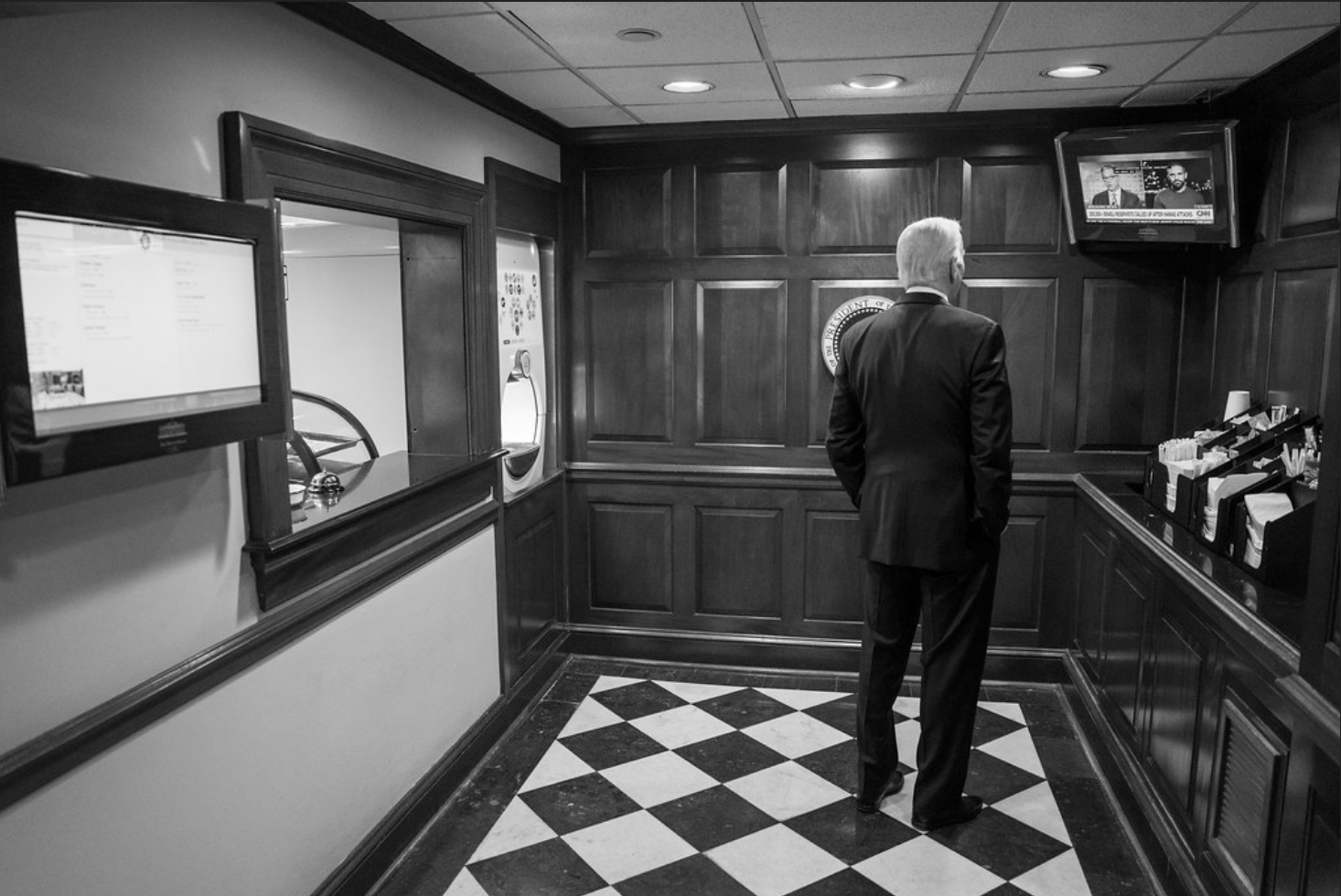
Refusing To Advocate For A Reporter's Shield Law
The change to guidelines came in response to news reports that the Trump administration had secretly subpoenaed the communications records of reporters at CNN, the New York Times, and the Washington Post as part of retaliatory leak investigations aimed at identifying sources.
However, the Biden Justice Department continued Trump's retaliation in 2021 until the subpoenas became public. Officials even imposed a gag order against Times executives, which Times deputy general counsel David McCraw called “unprecedented.”
The Biden administration gave journalists the cold shoulder as a coalition of groups urged the administration multiple times to codify the change to news media guidelines and back the PRESS Act—a national reporter’s shield legislation.
In June 2021, White House Press Secretary Jen Psaki incuriously said, “I’d have to look into the specifics of the piece of legislation.” The legislation received no public support from the White House, and in December 2022, anti-press Republican Senator Tom Cotton successfully blocked the law.
The PRESS Act was reintroduced in 2023, and it passed in the House of Representatives in January 2024. The shield law languished in the Senate for months as Democrats did nothing to move the bill for a vote. In April 2024, when White House press secretary Karine Jean-Pierre was asked if Biden supported the PRESS Act, she uttered a platitude: “[J]ournalism is not a crime. We’ve been very clear about that.” But the White House refused to back legislation that would protect reporters from criminalization.
After Vice President Kamala Harris lost the presidential election to Trump, Senate Majority Leader Chuck Schumer and other Democrats suddenly recognized the need to pass the PRESS Act. However, it was too late. Trump came out against the shield law, Cotton blocked the bill (again), and the Biden White House maintained its silence.
Tempering Support For Press Freedom When Client States Repress Journalists
During a debate among Democratic presidential candidates in November 2019, candidate Biden pledged to make the Kingdom of Saudi Arabia “pay the price” for murdering Washington Post columnist Jamal Khashoggi and make them “the pariah that they are.” Yet by 2023, as the Committee to Protect Journalists (CPJ) outlined in their “Global Impunity Index,” Biden had embraced the Saudi kingdom and “stymied” justice for Khashoggi.
“The failure to pursue justice for Khashoggi, a U.S. permanent resident, signals to repressive regimes that even the most powerful Western democracies will temper their fervor for the protection of journalists if they perceive political and economic interests are at stake,” CPJ Director Robert Mahoney wrote.
“In November [2022], his administration went as far as to declare that the crown prince was shielded by sovereign immunity. That effectively killed a civil lawsuit filed in U.S. district court by Khashoggi’s fiancée, Hatice Cengiz, that sought to hold Mohammed bin Salman and two of his senior aides liable for the death.”
“Secure in the knowledge that Western governments would take no action against him,” Mahoney added, “Prince Mohammed set about rebranding himself as a tech-friendly millennial and political reformer.”
BBC India produced a documentary, “The Modi Question,” about Prime Minister Narendra Modi’s role in the 2002 Gujarat riots, which resulted in the death of over 1,000 people. In response, the Modi regime censored the film, and in February 2022, officials raided the BBC’s offices in New Delhi and Mumbai. “Documents and phones of several journalists were taken and the offices sealed.”
After the raid, Agence France-Presse journalist Shaun Tandon asked State Department spokesperson Ned Price for comment. Rather than unequivocally condemn what happened, Price suggested that Tandon direct his question to Indian authorities. Price then spoke about the “importance of freedom of expression, which led Tandon to followup. “[D]o you think that this action went against that spirit or the banning of the documentary?”
“I couldn’t say. I couldn’t say. We’re aware that these – we are aware of the fact of the searches, but I’m just not in a position to offer a judgement,” Price stammered.
On the same day that Indian authorities engaged in this act against BBC India, Biden had a phone call with Modi. Biden and Modi discussed a “historic agreement for Air India to purchase over 200 American-made aircraft from Boeing.”
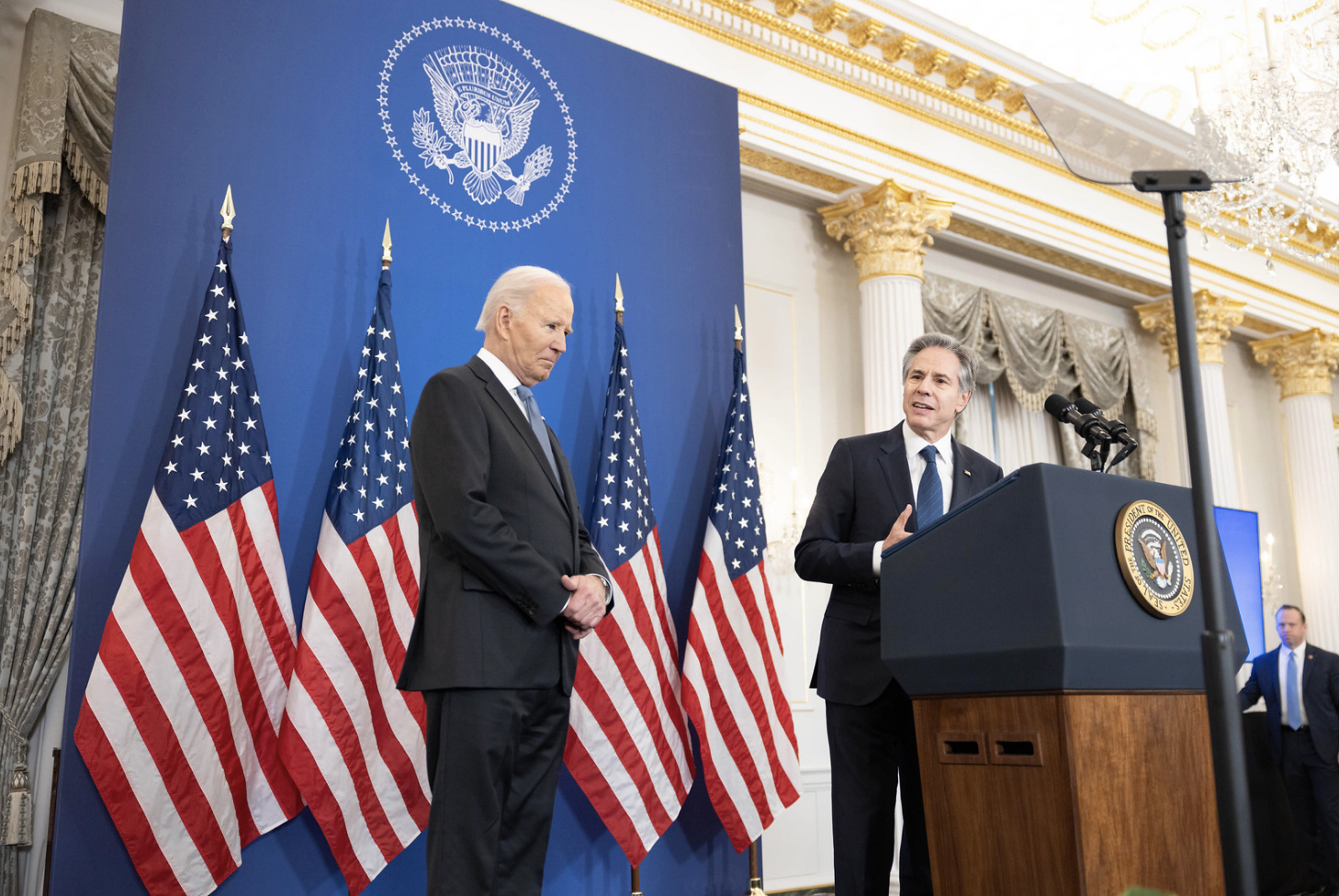
Palestinian American journalist Shireen Abu Akleh, a correspondent for Al Jazeera, was killed by an Israeli sniper on May 11, 2022, when military forces opened fire on reporters who were covering a raid on a refugee camp in the occupied West Bank.
Akleh’s family demanded that the Biden administration support their efforts for justice, however, officials resisted calls for an independent investigation. In fact, the Biden administration sided with Israel and contended that Akleh was not “intentionally” killed.
After Israel launched an intense bombing campaign against Gaza in October 2023, Biden officials continued to whitewash or ignore attacks on freedom of the press by the Israeli government.
The Biden administration planned and authorized around $26 billion in arms shipments to Israel, which included weapons that were used to kill journalists. By January 18, 2024, at least 217 journalists had been killed, and many of them were specifically targeted by military forces.
According to the CPJ, in 2023, the Israeli government became one of the world’s worst jailers of journalists. That distinction continued in 2024 as the U.S.-backed government detained or imprisoned 43 journalists.
Journalists in Gaza were detained under a law that allowed for long periods of detention without charge and “limited access to legal counsel.” Several detained journalists were held in confinement because they “had contacted or interviewed people Israel wanted information about.” They were kept in “inhuman conditions” that included “frequent acts of severe, arbitrary violence; sexual assault; humiliation and degradation; [and] deliberate starvation,” according to Israeli human rights group B’Tselem.
The jailing of Palestinian journalists was symptomatic of a censorship regime that Prime Minister Benjamin Netanyahu and other Israeli officials enforced. Thousands of international correspondents were prohibited from entering Gaza, and Al Jazeera was shut down in Israel and the occupied West Bank.
In October 2024, the Israeli government attempted to prosecute Grayzone reporter Jeremy Loffredo for "aiding the enemy during wartime and providing information to the enemy.” All he had done is travel to the impact sites where Iranian missiles had landed and report on the damage that was done. He was eventually allowed to leave the country, but the Biden administration was extremely quiet as a U.S. journalist faced detention and potential prison time.
One year after the Israeli military launched its assault, according to the Palestinian Journalists Syndicate (PJS), Israeli forces had “destroyed all media institutions” in Gaza.” Airstrikes had “demolished 73 media facilities, including 21 local radio stations, 15 local and international news agencies, 15 TV stations, 6 local newspapers, 3 broadcasting towers, 8 printing presses, and 13 journalistic service institutions.”
“In the early days of the genocidal war on Gaza, the Israeli military targeted most of the high-rise buildings in Gaza that housed both local and international media offices. For example, the Al-Shawa and Al-Haseeri towers in Gaza City, which contained 15 floors of media offices, were completely destroyed by an Israeli airstrike on December 18, 2023, causing extensive damage to the surrounding area,” PJS additionally recalled.
Student journalists in the U.S. faced violence from police and so-called counter-protesters as they attempted to cover a groundswell of protests against Biden’s support for Israel’s assault on Gaza.
At Cal Poly Humboldt in California, a reporter named Adelmi Ruiz livestreamed the moment when police detained her for "interfering with a crime scene." She told police that she was press, and it was her job to cover the police response to protesters. "Find a different job if this causes you to break the law," an officer replied.
Such repression was representative of a rising crackdown in the U.S. against routine journalism, especially against reporters that attempted to cover protests or homeless encampments. Freedom of the Press Foundation U.S. Press Freedom Tracker documented in 2023 and 2024 how U.S. journalists were punished for “asking questions of public officials, publishing leaked information, and documenting breaking news in the field.”
The U.S. Congress, with the support of Biden, also banned TikTok in April 2024. Subsequently, the U.S. Supreme Court upheld the law that banned the social media app.
As the Freedom of the Press Foundation warned, the law could be applied to "online news outlets based abroad, as long as they offer some kind of interactivity (for example, user comments)." The ACLU described the Supreme Court's decision as a "disturbing precedent" and one that "increase[s] the risk that sweeping invocations of 'national security' will trump our constitutional rights."
Despite staggering examples of the Biden administration’s role in making the U.S. and the world more unsafe for journalists, officials clung to their press freedom platitudes.
Secretary of State Antony Blinken in his farewell remarks to the press corps said he had a great appreciation for journalists who ask “tough questions” and hold officials like him to account. “Being on the receiving end, sometimes that’s not always the most comfortable thing; not always the most enjoyable thing. But it is the most necessary thing in our democracy.”
Yet as laudable as that may have sounded, Blinken had steered clear of the briefing room for a number of months. When he appeared, two credentialed reporters—Max Blumenthal and Sam Husseini—were tired of hearing speeches. They were fed up with spokespeople like Matthew Miller, who had smirked and berated reporters who confronted officials with important questions about Israel, which the State Department typically evaded or refused to answer.
Husseini claimed that Miller had “blackballed” him. He interrupted Blinken with two different questions before Miller had guards at the State Department drag Husseini out of the briefing room. Blumenthal was escorted out of the briefing room after he interrupted Blinken.
“Days before the inauguration of an anti-press President, the Biden administration handed Trump a gift by normalizing punishing journalists for asking questions officials don’t like,” declared Freedom of the Press Foundation advocacy director Seth Stern.
The moment was emblematic of Biden’s presidency when it came to press freedom. Biden officials supported journalists—except when it was politically inconvenient or they made officials look bad.
*Full series on Biden's legacy can be found here.

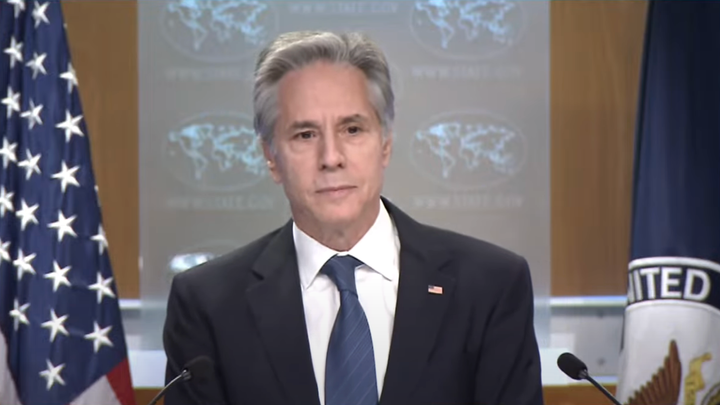
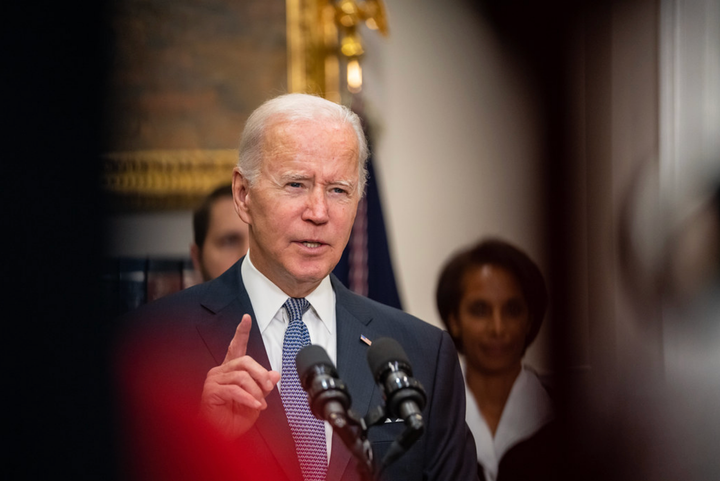
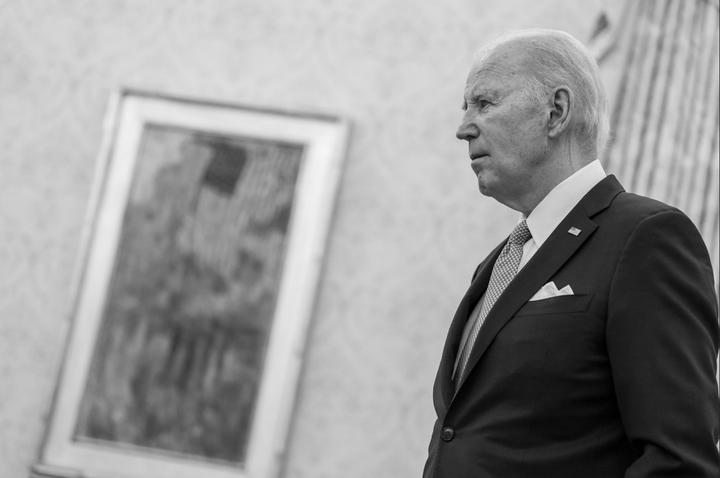
Comments ()